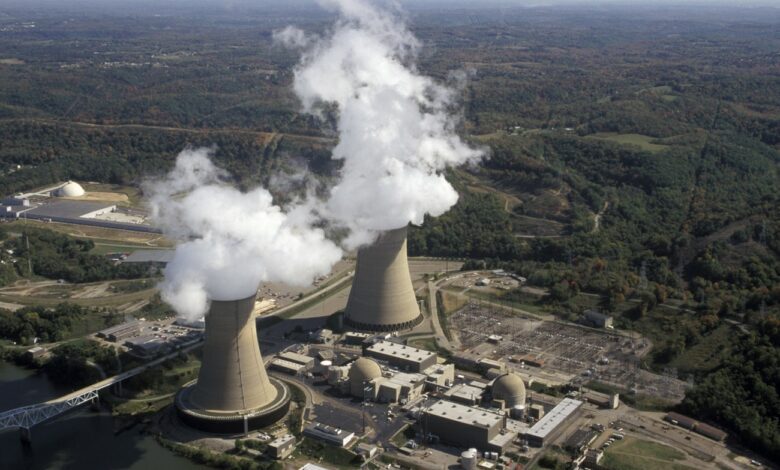South Africa’s Nuclear Future: A Critical Part of Energy Plans

Nuclear power will play a significant role in South Africa’s future energy strategy, aiming to provide affordable, reliable, and sustainable energy for the country’s growing needs. This vision, articulated by Zizamele Mbambo, deputy director general for nuclear at the Department of Electricity and Energy, was shared during the Nuclear Seminar in Tshwane on 12 September 2023. According to Mbambo, nuclear energy is set to be a key component of the country’s energy mix to meet baseload power requirements, positioning South Africa for long-term energy security.
“The main focus of the discussions here is the role of nuclear energy as part of South Africa’s energy mix,” Mbambo said, emphasising that nuclear energy provides one of the most affordable electricity generation options available. He also stressed that the government is committed to ensuring the country has a secure and sustainable energy future, which includes the implementation of nuclear power alongside other energy sources.
Government’s Nuclear Plans and Delays
South Africa’s Energy Minister, Kgosientsho Ramokgopa, has been engaging with key stakeholders in the nuclear sector to map out a sustainable solution to the country’s energy challenges. Earlier this year, in January 2024, Ramokgopa officially initiated the process to procure 2,500MW of new nuclear power by gazetting a new determination. This marked the start of a procurement process derived from the 2019 Integrated Resource Plan (IRP), which had already approved the addition of nuclear capacity to the energy mix.
Despite the initial progress, the process faced a delay in August 2024. Ramokgopa halted the bidding process to allow for greater public participation and ensure transparency. “We carry the responsibility of ensuring that this process is subject to the highest levels of public scrutiny,” Ramokgopa stated. His decision is rooted in the belief that transparency will prevent any suspicion of misconduct within the department or government, particularly with such a high-profile project.
Private Sector’s Push for Small Modular Reactors (SMRs)
While the government works on securing large-scale nuclear projects, the private sector is focusing on smaller, more manageable solutions. Small Modular Reactors (SMRs) are gaining attention for their potential to solve some of South Africa’s immediate energy problems, including transmission constraints. SMRs offer a flexible alternative, particularly where transmission infrastructure is limited or non-existent.
Koya Capital, a South African firm, has already made strides in this sector, recently partnering with Stratek Global to raise R9 billion for building the country’s first High-Temperature Modular Reactor (HTMR-100). This reactor, developed locally, could be operational by 2029 and is capable of providing up to 35MW of energy. Unlike large nuclear plants, HTMR-100 does not require vast amounts of water for cooling, allowing it to be deployed in areas without a robust water supply or large transmission networks.
The advantage of SMRs like HTMR-100 lies in their scalability. They can be deployed individually or in groups, offering towns and industrial users direct energy without the need to expand existing transmission networks. This is crucial in a country like South Africa, where the current transmission infrastructure has struggled to support renewable energy growth.
International Interest: X-energy and the Future of Pebble Bed Reactors
In addition to local initiatives, international players are also exploring opportunities in South Africa’s nuclear sector. US-based company X-energy is considering entering the market with its Xe-100 Pebble Bed Modular Reactor (PBMR), a design familiar to South Africa as it includes two former Eskom engineers who previously worked on PBMR technology. Each Xe-100 reactor can generate up to 80MW, and a cluster of four could power a 320MW plant.
André Pienaar’s C5 Capital is leading efforts to raise an additional R9 billion through private investment to build a PBMR plant in the Western Cape. The project could be the first of nine such stations, adding 1,800MW of power to the country’s grid over time.
Conclusion: Nuclear Energy’s Role in a Sustainable South African Future
As South Africa continues to grapple with load shedding and energy shortages, the integration of nuclear power, both on a large scale and through smaller, modular reactors, could provide a much-needed solution. While delays in government procurement processes may slow progress, the private sector’s enthusiasm for SMRs suggests that nuclear energy will remain a pivotal part of South Africa’s energy future.
By embracing nuclear technology, the country can move towards a cleaner, more stable energy supply, ensuring long-term growth and economic development.

